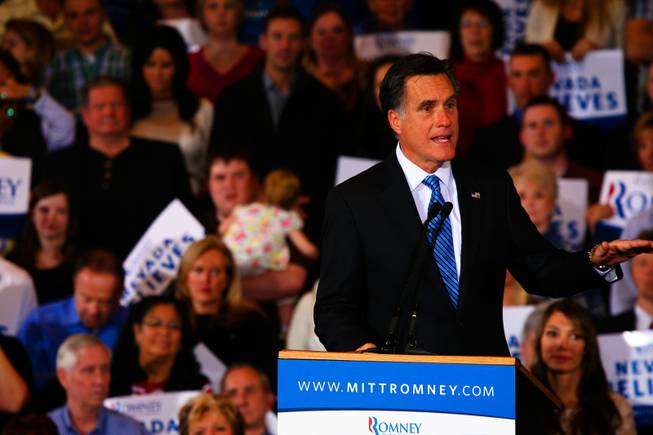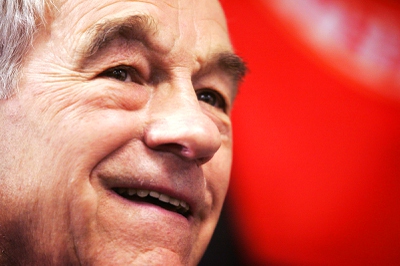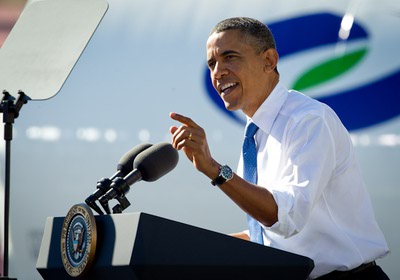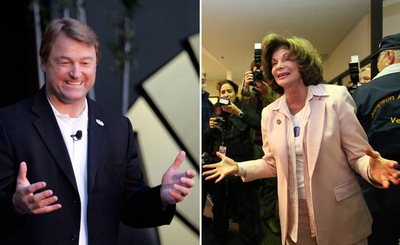
Mona Shield Payne
Republican presidential candidate Mitt Romney delivers his victory speech at the Nevada Republican caucus Saturday, Feb. 4, 2012, at the Red Rock Hotel and Casino in Las Vegas.
Tuesday, Feb. 7, 2012 | 2 a.m.
Sun coverage
Despite the dangling carrot of a Democratic president they want to oust, a competitive field of candidates to choose from and a stated desire to influence national politics, Nevada Republicans showed underwhelming enthusiasm to participate in their caucuses Saturday.
Over 10,000 fewer Republican voters made it to Saturday morning’s much-trumpeted caucuses than turned out for the underpublicized caucuses of 2008. To put it differently: about 8 percent of the party’s active voter base participated this time, compared with about 11 percent four years ago.
Taking the biggest hit was the party‘s front-runner, Mitt Romney, who despite an entrenched Nevada organization, lost the interest of 27 percent of his loyal followers from 2008.
It’s a troubling sign for a state party that everybody knew was in organizational trouble, to the glee of Democrats looking ahead to the general election.
“Despite his heavy spending in the state, the extremely low turnout makes it clear that Nevada voters are not excited about Mitt Romney or his pro-Wall Street, anti-middle-class agenda,” said Nevada Democratic Party spokesman Zac Petkanas.
Democrats also had a low turnout to their caucuses two weeks ago, but there was only one man — President Barack Obama — on the ballot.
Republicans jeered the outcome — despite the Democrats’ approximately 12,500 showing was about four times what Republicans turned out in their last noncompetitive party caucus in 2004 — and projected they would dwarf the Democrats’ showing overwhelmingly on Saturday. But Romney’s turnout in a competitive caucus turned out to be only a few thousand votes higher — which is all the more surprising given how well-placed his campaign was supposed to have been.
There were two candidates in this weekend’s contest who had campaigned for the presidential nomination in Nevada before: Romney and Ron Paul.
Even thoughPaul placed third, a lower berth than his second-place finish of 2008, he actually turned out more votes than he had four years ago.
Romney had fewer votes, but by virtue of the low turnout, he nearly matched his 51.1 percent showing of four year ago.
“I can honestly say I didn’t ever expect to have a candidate get 50 percent and have people question whether we were happy with our performance,” said Ryan Erwin, senior consultant to the Romney campaign in Nevada. “In the grand scheme of the general election, turnout in primaries is not a reliable indicator.”
But that’s not what the rest of Nevada Republicans seemed to be saying in the lead-up to this contest.
The party initially predicted that over 100,000 Republicans would turn out to caucus this year. Then Amy Tarkanian, now the former chairwoman of the Nevada GOP, scaled that back to 70,000. Then they pared that back even further to 55,000. In the run-up week to the caucuses, they hedged their bets one more time: 40,000.
The final total was 32,894. (In 2008, it was 44,315.)
Now, those same Republicans say the drop-off was to be expected.
“In 2008, Democrats and Republicans were on the same day ... and it was pretty contentious here,” said David Gallagher, executive director of the Nevada GOP. “Obviously, had Barack Obama been in town for the caucus, Republican would have shown up more.
“This is not an election. It’s a caucus, which is essentially a party meeting, which is different from a primary. What’s encouraging is through our caucus process, we have 4,200 new volunteers. ... They want to help door-to-door, they want to do phone banks. That’s really what we wanted to get out of this caucus, was getting a volunteer base.”
But 2012 is not a rebuilding year: There is a presidential election coming up, and in practice, the state is depending on the presumptive nominee’s ground organization to help whip them into shape for that election. (That in itself makes Nevada’s GOP weakness an anomaly; it’s the job of state parties to help turn out the vote for presidents.)
That Romney would lose over 6,000 supporters in a low-population state when pundits are already speculating that voters may not be terribly excited about his candidacy is not a good sign.
“I think they will be excited [about Romney] as this goes on. I think it will build,” caucusgoer Kathy Ely said on Saturday. “Compared to McCain? It was like, ‘Oh. OK.’ This is a whole different story.”
The numbers also cast some doubt on the relevance of recent polls that say Romney’s poised to beat Obama in Nevada, especially when one considers that Democrats, statewide, have a 95,000 advantage among registered voters and a 47,500 advantage among active voters — a force the party just successfully mobilized in 2010 to re-elect Harry Reid in a year in which the Tea Party was helping Republicans sweep most closely-competitive seats in the country.
Romney’s campaign doesn’t think that way — or see their depressed tally as the true count of conservatives for Romney in the state.
“I think the fascinating thing about the caucuses on Saturday is almost to a person, the people that stood up and spoke pledged to be with the nominee,” said Erwin. “I’m here with a candidate, pick your candidate, but priority No. 1 is to overturn the Obama agenda. You didn’t see that four years ago.”
But there was no Democratic president to potentially replace four years ago either.
“True,” Erwin said. “But there was also no pledge to be with the nominee. There was almost no desire to unite. It’s hard to quantify that, but it’s there. It’s clearly there.”
Most caucusgoers interviewed Saturday did say they would vote for the eventual Republican nominee, save for a few Paul supporters who hedged their bets, like Caroline Mason, who said she would first have to “be convinced that he’s not Obama in a different suit.”
Regardless of how much muscle the Nevada GOP ends up contributing, Romney’s eventual turnout in Nevada could also have a down-the-ticket effect — especially in Nevada’s close race for the Senate seat John Ensign once occupied.
Republican Sen. Dean Heller, who was appointed to the seat upon Ensign’s resignation, and Democratic Rep. Shelley Berkley are neck-and-neck in the most recent polls. Both are considered the presumptive nominees for their respective parties, which have already rallied around them for official events and promotion activities — and down the line, get-out-the-vote efforts.
A campaign representative for Heller did not return a call requesting comment for this article.
But a representative for Berkley, who will be the beneficiary of the ground-level get-out-the-vote machine Reid’s Nevada Democrats spent the last seven years building, did.
“The caucus this weekend was nothing short of disastrous,” said Berkley campaign spokesman Eric Koch, “and a clear sign that Nevada Republicans like Dean Heller have a lot of work to do to be competitive this November.”




Join the Discussion:
Check this out for a full explanation of our conversion to the LiveFyre commenting system and instructions on how to sign up for an account.
Full comments policy